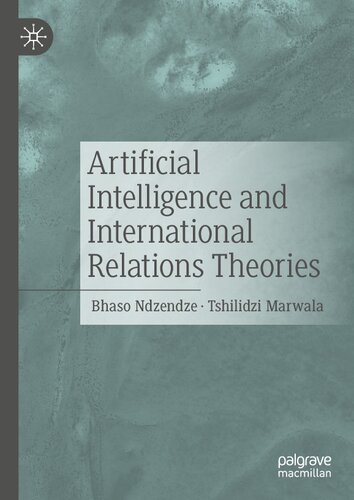

Most ebook files are in PDF format, so you can easily read them using various software such as Foxit Reader or directly on the Google Chrome browser.
Some ebook files are released by publishers in other formats such as .awz, .mobi, .epub, .fb2, etc. You may need to install specific software to read these formats on mobile/PC, such as Calibre.
Please read the tutorial at this link: https://ebookbell.com/faq
We offer FREE conversion to the popular formats you request; however, this may take some time. Therefore, right after payment, please email us, and we will try to provide the service as quickly as possible.
For some exceptional file formats or broken links (if any), please refrain from opening any disputes. Instead, email us first, and we will try to assist within a maximum of 6 hours.
EbookBell Team

5.0
88 reviewsThis book discusses the impact of artificial intelligence (AI) on international relations theories. As a phenomenon, AI is everywhere in the real world and growing. Through its transformative nature, it is simultaneously simplifying and complicating processes. Importantly, it also overlooks and “misunderstands”. Globally, leaders, diplomats and policymakers have had to familiarise themselves and grapple with concepts such as algorithms, automation, machine learning, and neural networks. These and other features of modern AI are redefining our world, and with it, the long-held assumptions scholars of IR have relied on for their theoretical accounts of our universe.
The book takes a historic, contemporary and long-term approach to explain and anticipate AI’s impact on IR – and vice versa – through a systematic treatment of 9 theoretical paradigms and schools of thought including realism, liberalism, feminism, postcolonial theory and green theory. This book draws on original datasets, innovative empirical case studies and in-depth engagement with the core claims of the traditional and critical theoretical lenses to reignite debates on the nature and patterns of power, ethics, conflict, and systems among states and non-state actors.